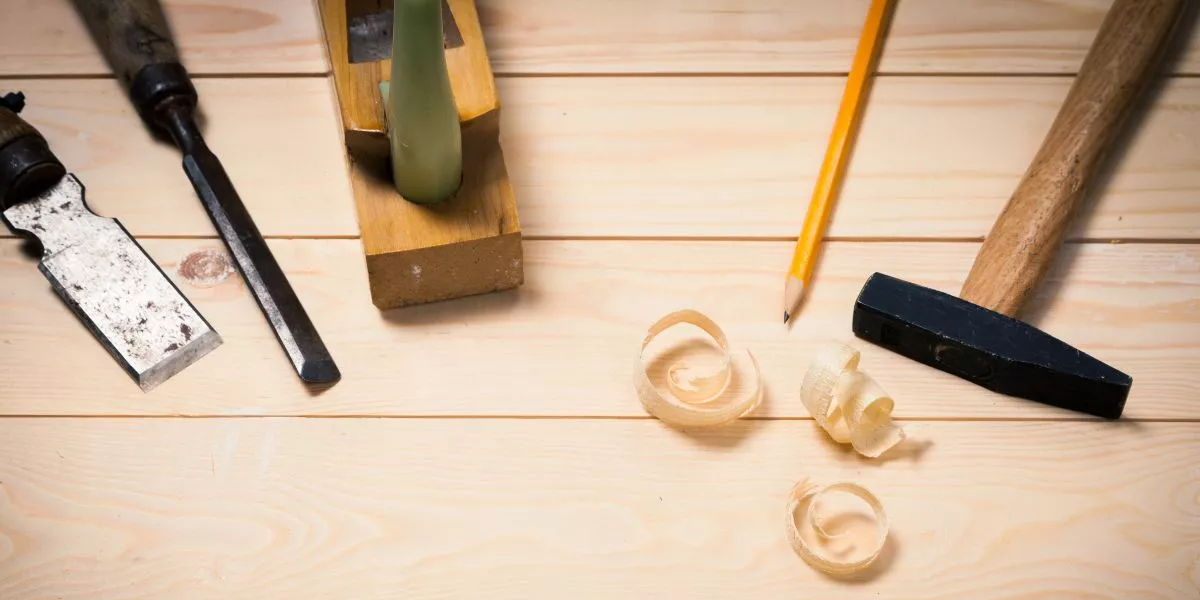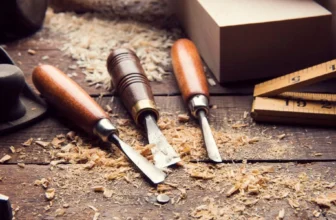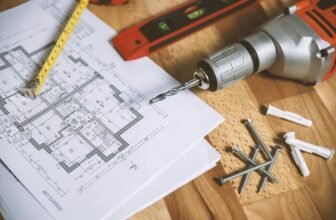
When you're starting your woodworking journey, choosing the right tools can set the foundation for your success. Essential hand tools like a quality tape measure and hand saw are crucial for making precise cuts and joints. But what about power tools or safety gear? Understanding what you need to equip yourself properly can make a significant difference in your projects. Let's explore the must-have tools that can elevate your woodworking experience.
Essential Hand Tools for Beginners
When you're just starting out in woodworking, having the right hand tools can make all the difference. A solid set of essential hand tools lays the foundation for your projects.
Begin with a quality tape measure to ensure accuracy in your cuts. A hand saw is crucial for making precise cuts without the need for power tools. Don't forget a reliable chisel set; they'll help you refine joints and create intricate designs.
A sturdy hammer and a set of screwdrivers are necessary for assembly. Finally, invest in a square to check your angles and a block plane for smoothing surfaces.
With these tools in hand, you'll be ready to tackle a variety of woodworking projects with confidence.
Must-Have Power Tools
As you progress in woodworking, adding power tools to your toolkit can significantly enhance your efficiency and expand your project capabilities.
A good starter power tool is a cordless drill, perfect for making holes and driving screws. Next, consider a jigsaw, which lets you cut curves and shapes with ease. A circular saw is another essential tool, ideal for straight cuts in various materials.
You might also want a sander to smooth surfaces and prepare wood for finishing. Lastly, a router can help you add decorative edges or create grooves.
These power tools not only speed up the process but also improve precision, making your woodworking projects more enjoyable and rewarding. Invest wisely, and you'll see great results!
Measuring and Marking Tools
Accurate measuring and marking are crucial in woodworking, since even a small mistake can lead to significant issues down the line.
To get started, invest in a good tape measure; it's versatile and essential for measuring lengths accurately. A combination square is another must-have; it helps you check and mark right angles with precision.
Don't overlook a marking knife, either; it creates cleaner, more accurate lines than a pencil. A carpenter's pencil is helpful for marking on rough surfaces, while a straight edge ensures you get those straight cuts right.
Lastly, consider a set of calipers for measuring smaller dimensions. With these tools, you'll set the foundation for successful woodworking projects.
Safety Equipment and Accessories
While diving into woodworking, overlooking safety equipment can lead to serious accidents. To protect yourself, invest in essential gear like safety glasses, which shield your eyes from flying debris, and a dust mask to filter out harmful particles.
Hearing protection is also crucial, especially when using loud power tools.
Don't forget about gloves; they provide grip and protect your hands from cuts and splinters. A first aid kit is a must-have for any workshop, ensuring you're prepared for minor injuries.
Lastly, consider a fire extinguisher if you're working with flammable materials.
Conclusion
In summary, starting your woodworking journey with the right tools is key to developing your skills. By equipping yourself with essential hand tools, must-have power tools, and proper measuring and marking tools, you'll set a solid foundation for your projects. Don't forget about safety equipment—protect yourself while you learn! With these tools in hand, you're well on your way to creating beautiful pieces and enjoying the rewarding experience of woodworking. Happy crafting!




